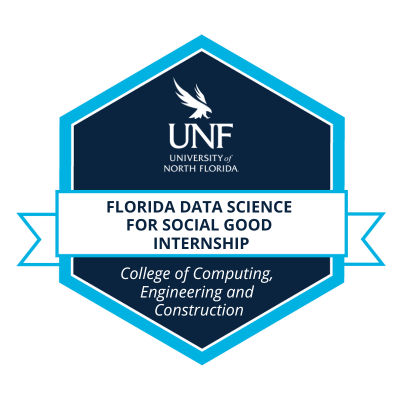The ability to affect change and do good in one’s community increasingly depends on having the right information at the right time to make the right decisions about things that are most important. Often, the information available to meet these needs is not well organized, not well understood, and not packaged in a way that helps those working in the community do their best.
Data Science for Social Good projects connect community expertise, data processing methods, computing power, and effective data visualization to help community organizations make data-based decisions to deal with wicked problems. A wicked problem is a vexing, persistent social or cultural issue that is complex, interconnected with other problems, has policy implications, and requires many people working together to affect change. Data Science projects address wicked problems in one of several areas of societal importance, including education, the environment, government services, health care, healthy living, safety/security, smart urban development, social & economic inequality, and sustainability. DSSG Student Interns have the opportunity to contribute to projects that help solve these wicked problems in their communities.
